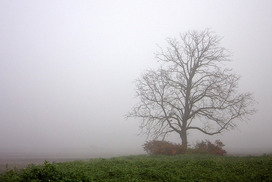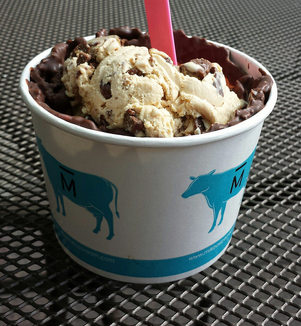| Happy 2015! I want to help you be well in the new year. I am offering $10 off your next acupuncture treatment or package, valid through January 31st, 2015. The offer is good for new and established patients. Fill in the Blank--In 2015, I want to __________:
Please share this special $10 offer with your family and friends! Call 904-619-2703 to schedule your appointment today. Regular prices: $75 New Patients, $60 Returning Patients |
|
0 Comments
 Fog is an example of Dampness in nature Fog is an example of Dampness in nature If you've been a patient in my clinic, you may have heard me talk about the concept in Chinese Medicine of "Dampness." Chinese medicine is a system in tune with nature. Ancient developers of the medicine lived and worked exposed to the elements, and they observed how weather and the seasons impacted the human body. According to Chinese medicine, there are six main pathogens in nature (also called evils) that can invade the body, similar to how we might think a virus invades. They are: Wind Damp Cold Heat Summer-Heat Dryness An invasion or accumulation of dampness in the body might present symptoms such as sore and achy joints and muscles (think an achy knee or arthritis that acts up when it rains), a “foggy feeling” mind, a headache that comes on when the weather gets damp, or heaviness and sluggishness of the whole body and mind. Dampness can come from external sources like the weather, but it can also accumulate internally. This can happen if the person’s digestive system is not working ideally (it is said that the inefficient processing of food causes dampness) or if they are eating a lot of foods that cause dampness. That’s right, foods can embody the pathogens, too. Consider a chili pepper (hot), crackers (dry) or ice water (cold). What foods might be classified as damp? Think things that are heavy and high in fat content: dairy products, nuts, fatty meats, pizza, pastries and pies. Sugar and pastries are also a big culprit when it comes to dampness formation. Ice Cream is considered the worse possible food you can eat if you want to avoid dampness. People often notice that when these foods are consumed they might developed clogged sinuses, phlegm, indigestion or sluggishness. Each pathogen is also related to a specific function or energy in the body. Dampness correlates to the function of digestion in Chinese medicine. If you have a weak digestive system, you might be less-able to handle damp foods like the ones mentioned above, causing belching, nausea or acid reflux. Dampness can also accumulate in the limbs, joints and muscles, causing pain and heaviness. So what do we do about this? Chinese medicine can utilize herbs and acupuncture points to dispel and dry dampness and aid the digestion in processing damp foods. Your practitioner might also recommend some dietary changes in the short or long-term to alleviate the symptoms of your dampness. How does damp weather or food affect you? |
AuthorKendra Lay, ACN Archives
June 2024
Categories
All
|



 RSS Feed
RSS Feed